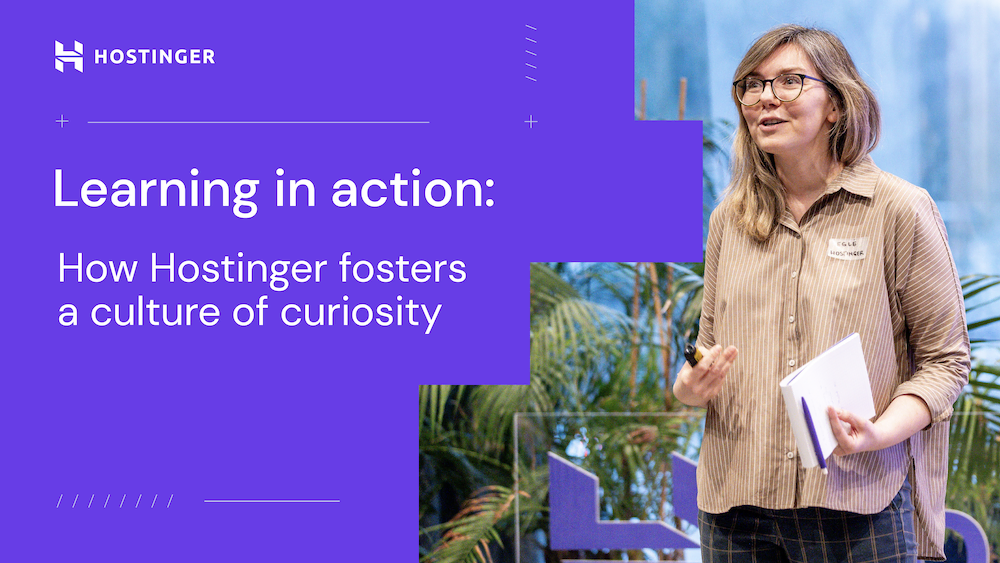When Is A Startup No Longer A Startup?

There is something snazzy about being called a startup. What comes to mind first? Flexible working schedules, unicorns, colorful open offices, pizza parties, and free snacks, or maybe family-like teams, countless hours on laptops, and endless uncertainties?
In its purest form, a startup is defined as a company in the first stage of its operations, usually seeking proof of concept, market validation, and funding in order to scale. This definition has been expanded to include more ideas that make up a modern entrepreneurial company. While we do have a clear idea of what a startup is, there has never been an apparent line as to when a startup stops being one.
When does it really become a company in its traditional meaning and definition? And could a full-fledged company still keep some entrepreneurial elements in its approach and execution even after 5 or 10 years of operations?
A Startup by Definition
We can refer to startups as difference makers and dreamers – hungry for achievements, with a desire to develop a unique product or service and bring it to the market by disrupting it. Likewise, Paul Graham, the founder of Y Combinator, describes a startup as a company designed to grow fast with no time limit present. However, it still seems that such market-changing players like Uber, Amazon, and Tesla are no longer called startups despite their continuous growth.
There have been many attempts to set a numerical limit on what separates a startup from a company by the number of employees, revenue, profit, funding specifics, and more. One of these, called the 50-100-500 rule suggests hanging up your startup uniform if any of the following apply to your company:
- $50 million revenue run rate (forward 12 months);
- 100 or more employees;
- Worth more than $500 million, on paper or otherwise.
So what if your company achieved or surpassed these numbers but still feels like a startup at heart?
The Startup Soul
When being asked to define their company’s culture, employees often start talking about flexible working environments, cool offices, attention to the work-life balance, original events, and dynamic team structures. What truly is missing from these descriptions is the ability to articulate a company’s true identity, since “putting a ping pong table in the offices of IBM won’t make it a startup”.
“Entrepreneurs should play with and explore ideas, letting their strategies evolve through a seamless process of guesswork, analysis, and action,” stated Amar Bhide in his How Entrepreneurs Craft Strategies That Work back in 1994. Via such play and exploration, the startup culture has grown in stature over the last decade, creating an entire movement of companies that develop exciting, progressive, valuable products and services.
Thanks to innovative companies like Netflix, Facebook, Airbnb, and more, the startup mindset is now a relevant section in the modern business dictionary. Hence, this forward-oriented thinking is characterized by opportunity obsession, idea-drivenness, focus on execution, and readiness to change the course.
The research published by Harvard Business Review shows that there is a certain energy or soul present in startups that inspires employees to contribute their talent and enthusiasm, investors and customers to commit their money, and founders to believe that their ventures are something above their missions and business models. Based on such findings, the startup soul is laid out in three key principles which help a company remain innovative and maintain continuous growth:
- Business intent (the meaning for work, the real true self of an organization).
- Customer connection (customer obsession explained which bonds them with a company).
- Employee experience (empowering the ones forming emotional ties with the company and motivating them to go the extra mile).
A company’s culture is never built in a day and is not just limited to organizational values and guiding principles. The major challenge is keeping these three elements on top of a business strategy and daily activities in order to preserve the startup soul and maintain entrepreneurial flair during the growth.

Hostinger’s Views on Startup Culture
Hostinger was bootstrapped in 2004, and we’ve been on an epic ride ever since. It is already a fully-fledged, profitable business that is rapidly scaling and leaving the original startup definition behind. The necessity to start talking about the culture at Hostinger arose when we began to look for a business approach on how to evaluate employee performance without going into the emotional and personal assessment of work. Values of successful entrepreneurial companies like Netflix, Google, Amazon were an inspiration for us.
Therefore, from our perspective, startups are about the culture – the freedom to act, make decisions, follow principles and values as a guiding line in all business activities.
Culture is how we behave when nobody is watching. This is how we see the culture, and it is reflected in the principles of our work. A high pace, high standards, an orientation towards results – this is the culture that encourages personal and organizational learning and growth.”
Gabija Marganavičė, Chief People Officer at Hostinger
The freedom to learn, investigate, make mistakes, experiment, and grow comes with considerable responsibilities. Since our culture stands as a merger between the guiding principles and the team, the people’s success is the company’s success at Hostinger.
Measuring the Culture
Challenging stereotypes and standards in a multinational environment is a daily process here at Hostinger. Due to the current pandemic, more than 1000 employees from 35 countries worldwide work remotely. Culture is the central element that unites us all, and there is no recognized need to localize it, according to Justina Telyčėnė, People Partner at Hostinger.
“Subcultures appear, and they are greatly determined by the multiple localities of Hostinger. No matter which country our employees come from, our strategy and goals remain the same, requiring similar tools to achieve our objectives. Perhaps, one principle will be more prevalent in one location than in another, but the cultural environment must still be the same. Subcultures are acceptable as long as they work together towards a unified purpose and according to the same principles.”
Justina Telyčėnė, People Partner at Hostinger
By not localizing the culture, we aim to ensure that we are all on the same page and can accurately measure our culture’s individual and organizational impact. The Net Promoter Score (NPS) and Team Pulse methods are applied to work on the culture and improve it.
Based on NPS data, we can see whether employees are willing to recommend Hostinger as a place to work, followed by questions of what could be done better if the evaluation does not meet the maximum score. Accordingly, a monthly Team Pulse survey focuses on the five principles that an effective team must follow (psychological safety, dependability, structure & clarity, meaning of work, impact of work).
Creating a New Type of Corporation
Here at Hostinger, we’re building a plane as we fly. As a startup expands, additional formal structures and processes must be added and applied to manage the business. Nothing is wrong with healthy corporate environments – they can bring transparency and simplicity if processes are efficiently arranged. Consequently, Hostinger’s example illustrates the new type of corporate structure, which includes business intent, customer connection, and employee experience as the main ingredients, all with an entrepreneurial flavor.
Unlike huge corporations, startups don’t have the luxury of a slow crawl – customers do not have the time to wait for a startup to adapt. Unfilled gaps to satisfy their needs are quickly filled by competitors. Therefore, Hostinger’s true self consists of speed in decisions, testing through errors rather than waiting for the best option, and delivering quality results fast. Gintarė Stundytė, COO at Hostinger, defines us as “a bunch of people united by a few key elements: we like to deliver results, learn a lot, and do things fast. We know that happy customers are critical for a growing business, and we want to prove that Lithuania is a place where unicorns are born.”
“Customer Obsession is what you live, eat, and breathe every day, 365 days a year. It is simply the way you run your company… always putting the customers’ well-being in front of everything else you are doing,” as stated by Blaine Millet, describes Hostinger’s customer connection as the key element of this new type of entrepreneurial corporation. We extensively research and strive to understand our customers better, working with great effort to earn and keep their trust.
Employees’ emotional ties with the company form gradually and exist as a two-way relationship between an organization and an employee. This kind of bond needs a constant boost for people to grow both individually and as a team. Therefore, in a fully-fledged organization like Hostinger, the startup culture serves as an accelerator for employees to deliver results. And this is what we think motivates and makes the best people stay – curious colleagues and a fast-changing environment composed to deliver results.
How to Maintain Startup Culture While Rapidly Expanding
From Hostinger’s experience, we’ve recognized the need for a startup to incorporate discipline and order into its business activities as it grows. A higher efficiency, maintained customer bonds, and team connections are expected if such adjustments are implemented thoughtfully.
The culture will change together with the startup, whether we want it or not – and that is not something to be afraid of. Company culture stands as the only element that can never be copied by competitors.
These are some practical tips from Hostinger to maintain a startup culture even when you’ve made it big:
- Keeping processes open, transparent, and honest. Objectives and Key Results (OKRs) is the goal-setting methodology and management tool used at Hostinger. It indicates the initiatives we focus on in a particular quarter. OKRs are viewable across the organization from the CEO down to the interns, so every employee is welcome to share their views, suggest ideas, and question the direction.
- Maintaining high work organization standards. A person is hired, promoted, and dismissed at Hostinger, all based on the 10 guiding principles. We do not rely on time worked, location, race, gender, etc. Thus, if results are delivered, the opportunity for advancement can quickly open up.
- Leading by example. Our CTO, Balys Krikščiūnas, started his career at Hostinger as a Customer Success specialist and the third employee of the company. There is no better person to build the product than the one who truly knows Hostinger’s customers from the bottom to the top. By placing Hostinger’s senior leadership knowledge, experience, and external resources in a development framework based on our principles, the MANAGER’S ACADEMY at Hostinger was started. Its goal is to develop mindful leaders keen to think critically and openly.
- Offering a chance to experiment and continuously learn. Constant learning and development are daily elements of startup operations and Hostinger is no exception. Customer Success: Know It All, Tech Guild, Designers Guild, and the MANAGER’S ACADEMY are just a few successful, attention-grabbing examples of internal initiatives that increase employee engagement and provide us with practical takeaways to adopt in daily tasks and objectives.
- Celebrating small successes. Each OKR finishes with achieved results, and we wish to acknowledge them. After summarizing the quarter results in key meetings, we have a celebration. COVID-19 did not take away this tradition, and the achievements are being recognized in online events and interactions, boosting employee engagement and motivation for the upcoming challenging quarter ahead.
As a startup is driven by entrepreneurial ideas and the aim to create a sustainable business model, we could state that once a venture has proof that an idea works and achieves its potential by the growth of scale and revenue, it is no longer a startup. And we are not an exception here – being technically not a startup anymore, Hostinger still keeps an entrepreneurial flair at heart. “It doesn’t matter how good your original product is, if you can’t build a great company around it, the product won’t endure,” Brian Chesky, co-founder and CEO of Airbnb, summarizes it all. Even after reaching the big league and getting out of the startup arena, maintaining the startup culture is what creates the magic and ensures continuous innovation and growth.




